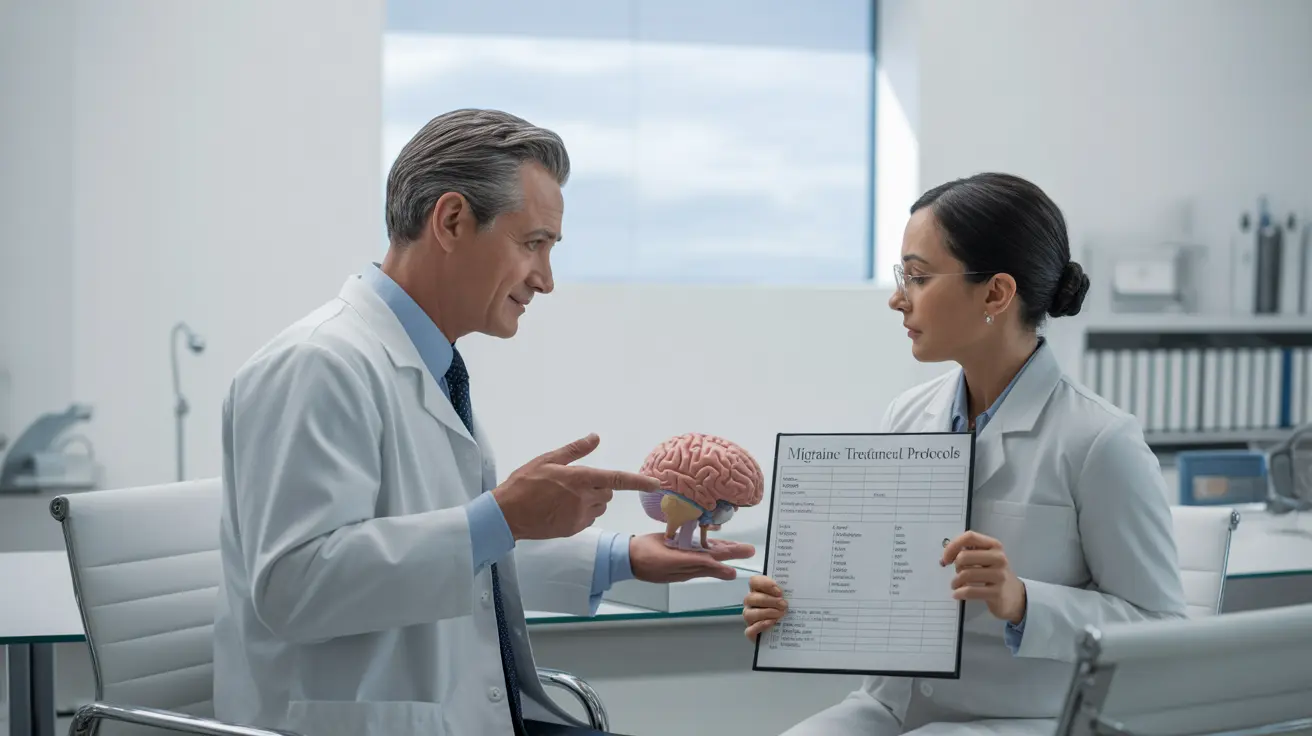When dealing with chronic or severe headaches, finding the right medical professional is crucial for effective treatment. While both neurologists and headache specialists play important roles in headache care, understanding their distinct qualifications and approaches can help you make an informed decision about your treatment path.
This comprehensive guide will explore the key differences between headache specialists and neurologists, helping you determine which specialist might be best suited for your specific headache concerns.
Understanding the Basic Differences
Neurologists are medical doctors who specialize in treating conditions affecting the nervous system, including headaches, while headache specialists are physicians who have pursued additional specialized training specifically focused on headache disorders and their treatment.
Educational Background and Training
All headache specialists begin their careers as either neurologists or primary care physicians. What sets them apart is their additional fellowship training and certification in headache medicine through organizations like the United Council for Neurologic Subspecialties (UCNS).
When to See Each Type of Specialist
Seeing a Neurologist
A neurologist might be your first specialist referral when:
- You're experiencing new or changing headache patterns
- Your primary care physician suspects neurological conditions
- You need a comprehensive neurological evaluation
- Your headaches are accompanied by other neurological symptoms
Choosing a Headache Specialist
A headache specialist might be more appropriate when:
- Traditional headache treatments haven't been effective
- You have complex or chronic migraine conditions
- Your headaches significantly impact your quality of life
- You need access to the latest headache-specific treatments
- You require specialized treatment plans
Advanced Treatment Options
Headache specialists often have access to and experience with cutting-edge treatments that might not be available through general neurologists, including:
- Specialized nerve blocks
- Botox injections for chronic migraine
- Advanced medication protocols
- Clinical trials for new treatments
- Comprehensive lifestyle modification programs
Diagnostic Approaches
While both specialists can diagnose headache conditions, their approaches may differ. Headache specialists typically focus exclusively on headache disorders, allowing them to recognize subtle patterns and variations that might be missed by general neurologists. They often use specialized diagnostic tools and maintain detailed headache diaries to track patterns and triggers.
Frequently Asked Questions
What is the difference between a headache specialist and a neurologist when treating headaches? A headache specialist has additional specialized training specifically in headache medicine beyond their neurological or medical training. They focus exclusively on headache disorders, while neurologists treat a broader range of neurological conditions.
When should I see a headache specialist instead of a general neurologist for my migraines? Consider seeing a headache specialist if your migraines are complex, chronic, or haven't responded well to standard treatments. They're also recommended if you need access to specialized treatments or clinical trials.
What additional training do headache specialists have compared to neurologists? Headache specialists complete additional fellowship training in headache medicine and often hold specific certification from organizations like the UCNS. This training focuses exclusively on diagnosing and treating various headache disorders.
What advanced treatments can a headache specialist offer that a neurologist might not? Headache specialists often provide specialized treatments like targeted nerve blocks, advanced Botox protocols, newer preventive medications, and access to clinical trials. They may also offer more comprehensive lifestyle and trigger management programs.
How do headache specialists diagnose and manage complex or chronic headache disorders? Headache specialists use detailed headache diaries, specialized diagnostic tools, and their extensive experience with headache patterns to create comprehensive treatment plans. They often take a more holistic approach, considering lifestyle factors, triggers, and various treatment modalities.




